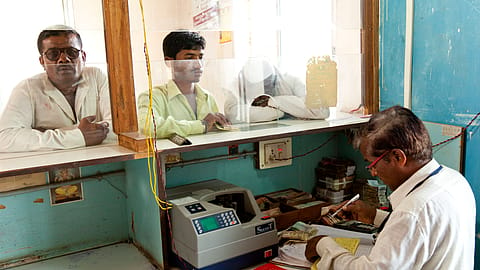The curious case of PSU banks’ staff appraisals
PSU banks’ heads say there is a need for scientific and unbiased management processes to evaluate the performance of employees.

The public sector has often been called out for subscribing to sub-standard outcomes in terms of efficient human resource management. In the age of data analytics, what tools can state-owned firms use to evaluate the performance of employees and motivate them to strive for excellence in the face of new challenges like mergers?
At the Banking HR Conclave 2019 of the Indian Banks’ Association, chiefs of four major public sector banks unanimously agreed on the need to upgrade the appraisal system and incorporate a “scientific” approach to improve workforce productivity.
“Somewhere there is a problem in the way the appraisal system is followed in PSUs. For example, 80% of my staff is rated as ‘very good’, but then why is the bank growing between 5% and 6%?” remarked Rajkiran Rai, managing director and chief executive officer, Union Bank of India.
Rai also emphasised the need to identify good and average performers, and put in place scientific and unbiased management processes to evaluate the performance of employees. “Good performance is not always financially rewarded in the PSU sector,” he noted.
“Currently, employee appraisals are not system-driven and subject to bias based on the personal opinion of the manager. We need an ongoing scientific approach to evaluate the performance of staff,” said Atul Kumar Goel, managing director and chief executive officer, UCO Bank.
Most companies see appraisals as an annual event, but increasingly there have been calls for a monthly or quarterly performance management system to provide regular feedback and guidance to enhance productivity. “Employees must be mentored and trained based on their skills and aptitude,” notes Rajkiran Rai.
Goel said that it is the responsibility of the organisation to train and improve staff quality. “A fair assessment system based on technology will allow companies to do this,” he said.
Recommended Stories
Pallav Mohapatra, managing director and chief executive officer, Central Bank of India, said public sector employees need to be open to new work cultures to improve efficiency. “Those employed in the private sector earn more, but we don’t crib about this because we chose to work in the public sector for job security,” he pointed out.
The clamour to improve productivity of public sector bank employees comes in the backdrop of the government’s big move to consolidate state-owned banks by bringing down their number from 21 to 12. PSU banks’ employee unions see this as a prelude to privatising banks, and have called for a nation-wide strike on October 22 to protest against the announced mergers.
“At a time when the government is talking of providing every citizen access to banking via schemes such as Jan Dhan Yojana, etc., announcing the PSU banks merger, which will result in large scale closure of branches and deprive people of banking service, is a most retrograde move,” the All India Trade Union Congress said in a statement on Wednesday.
As Union Bank prepares to merge with Andhra Bank and Corporation Bank, Rai is wary of post-merger issues involving integration of a diverse workforce. “I can do a lot of things, but how it comes across is more important. I may think the steps I am taking are fair, but the perception is more important. Scientific management techniques are the solution,” says Rai.
(INR CR)